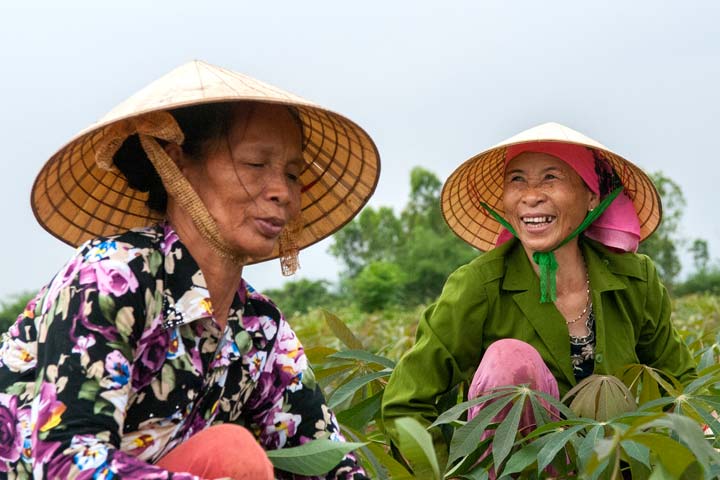EATS - Entry Points to Advance Transitions toward Sustainable Diets
EATS - Entry Points to Advance Transitions toward Sustainable Diets
EATS - Entry Points to Advance Transitions toward Sustainable Diets
Program: Emerging Opportunities Transformation Grants
All Emerging Opportunities Transformation Grants projects »

Photo credit: CIAT / G. Smith
Project Team
Andrew Jones - U-M School of Public Health
Leslie Hoey - U-M Taubman College of Architecture and Urban Planning
Martin Heller - U-M School for Environment and Sustainability
Colin Khoury - International Center for Tropical Agriculture (CIAT)
Evan Girvetz - CIAT
Stef de Haan - CIAT
Project Summary
There is an urgent environmental, economic, and public health imperative to reshape human diets to safeguard human health, mitigate climate change, and sustainably use the planet’s natural resources. A major barrier to achieving sustainable diets is defining clear interventions points and approaches that will provide a net-positive systemic influence across sectors. This project seeks to overcome this barrier by addressing the following actionable research question:
"My work on this project helped me better grasp the opportunities and challenges of tackling food and sustainability issues through a systems perspective. Being involved with EATS helped me think about the role of data and how national or global systems, processes, or research can help influence local efforts in enhancing public health and the sustainability of food systems."
—Lauryn Lin, M.P.H., 2019, School of Public Health, University of Michigan, said of her work on the project.
Read more about the work that U-M students contributed to this transformation grant project.
How can existing data and insights into the policy process be leveraged to inform decision making on where and how to intervene to effectively shift multiple axes of food systems toward enhancing the sustainability of diets?
To answer this question, U-M researchers have partnered with the International Center for Tropical Agriculture (CIAT), a non-profit research and development organization that has committed to a sustainable food systems research and action agenda. This multisector team will aggregate, synthesize, and analyze currently available data relevant to multiple domains of sustainable diets for two case study countries—Kenya and Vietnam.
Through an iterative consultation process with national and sub-national decision-makers and experts in each country, the team will identify critical decision making needs, data gaps, and insights into the policy process at diverse scales, and in response, generate unique information packages aimed at informing evidence-based, systems-level decision making on sustainable diets.
Project outputs will be generated in collaboration with and explicitly designed for use by these stakeholders. The project will: generate new insights into the policy process in each country, how this process aligns with goals for sustainable diets, and the challenges and opportunities to enhancing this alignment; and foster a clearer understanding of key food systems linkages and policy levers that contribute to or detract from the goals of sustainable diets.
The expected long-term impact of the project is accelerated progress toward achieving the goals of sustainable diets in each case study country, many of which are linked to the Sustainable Development Goals.
This project received a $450,000 Transformation Grant in 2017.